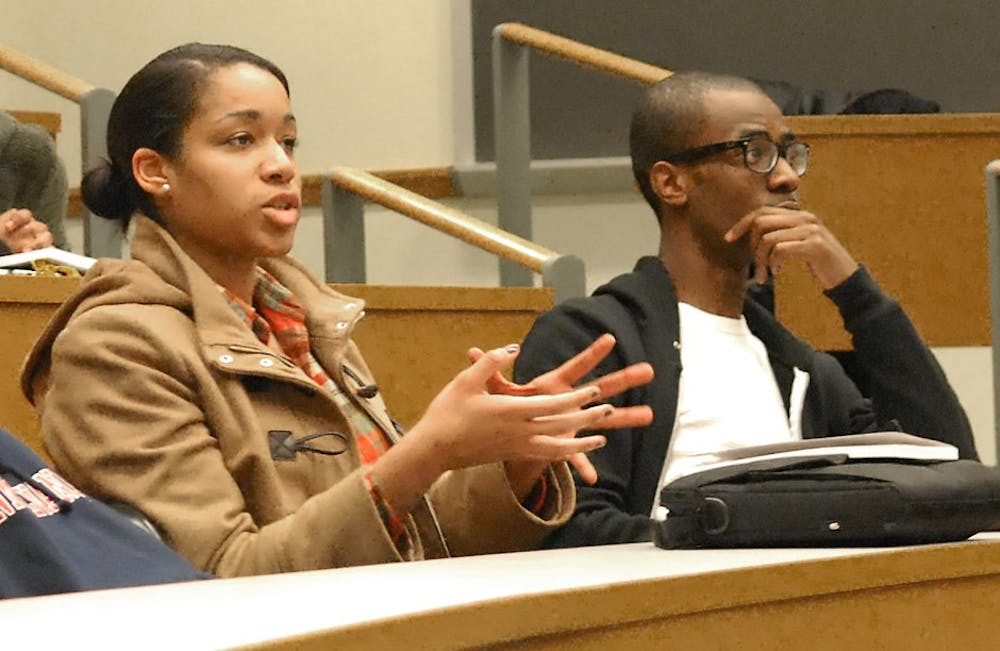Students gathered Wednesday night for a discussion on the issues facing the black community. Hosted by Penn’s chapter of the NAACP and the Delta Eta Chapter of Kappa Alpha Psi fraternity, the talk centered on a term popularized by W.E.B. Du Bois, the “talented tenth.”
The concept describes the likelihood that one in ten African Americans — through a classical education — will become a leader of his or her race and have access to opportunities and privileges that can bring about social change.
The event called on African-American students to share their thoughts on the black community and what they think their responsibilities are as Penn students and black people of privilege.
For event organizer and new member of Kappa Alpha Psi Fraternity Azani Pinkney, the goal of the event is to allow “students to fully understand that there is this large disparity between those who are in positions of privilege and power and those who aren’t.”
The college sophomore believes that black students with privileges should feel an obligation to give back to their community, even more so than the other races because African Americans are generally worse off than the other minority groups.
“It is important to take our opportunities to assist others,” agreed College senior and President of Penn’s chapter of the NAACP Megan Reed. For her, the purpose of the discussion was to elaborate on “what [students] can do to foster a greater sense of community.”
As the evening progressed, the students came to a consensus that, with their Penn education, they were among the privileged and should use what they gain to give back to the black community.
To reach that consensus, the students defined the ‘Talented Tenth’ and discussed whether they think it exists.
Most students believed it existed to a certain extent. Numerically, it may not be precise, but the general idea that there is a disparity in the black community is true, they concluded. The definition of ‘privilege’ was also debated, as well as the obligations of the privileged.
The students also analyzed how the issue of racism has changed over the last few decades and how this change contributes to or mitigates issues, like poverty, that are still facing the African American population today. Some students suggested that racism depends largely on geographical location and that in some parts of the United States, the issue is still a dominant factor in the lives of African Americans.
College senior Marvin Harris is glad to have this sort of forum to engage in dialogue. “It is [at Penn] that we are able to spark that dialogue” and use the resources available to help other people, he said.



